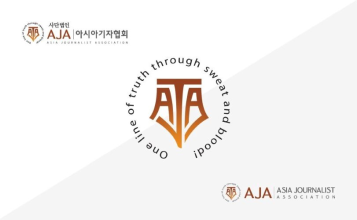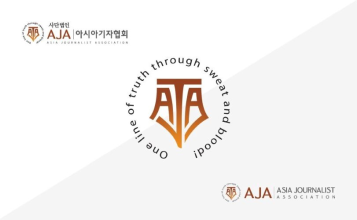AJA Newsbites – November 21, 2025

AJA Newsbites is a curated roundup of major news and developments from across Asia, brought to you by members of Asia Journalist Association (AJA)
Lee Sang-ki, THE AsiaN, Korea
South Korea’s Ministry of Justice has announced that 21 outstanding global talents have been granted Korean nationality, including renowned AI scholar Prof. Kyunghyun Cho of New York University. Thirteen individuals received special naturalization, while eight regained previously held Korean citizenship.
Prof. Cho, a Korean American, is internationally recognized for his contributions to neural machine translation and has received consecutive Best Paper Awards at ICLR, as well as the Samsung Ho-Am Prize in Engineering.
The list also includes Prof. Rejania Shahabaldin of Sejong University, an Iranian-born environmental energy scholar who has been selected for six consecutive years as a top 2% global researcher. Egypt-born wrestler Fudamoaz Ahmed Abdulhalim Nabihamad, a National Sports Festival gold medalist raised in Korea, also acquired citizenship.
Since its launch in 2011, Korea’s Outstanding Talent Naturalization Program has granted nationality to 428 individuals across science, culture, and sports.
Norila Daud, Malaysia World News, Malaysia
The Durian Manufacturer Association (DMA), which represents Malaysian durian producers, has proposed designating “durian” as the national fruit and officially submitted the application to the Ministry of Agriculture and Food Security on November 10, according to media reports.
“Durian holds deep symbolic value for the people, as every Malaysian has memories associated with it. It is a tradition and something that unites all citizens,” said DMA President Eric Chan.
Several Malaysian premium varieties—such as Musang King (D197), Black Thorn (D200), and D24—have received international recognition, positioning Malaysia among the world’s top producers of high-quality durian.
The Intellectual Property Corporation of Malaysia has also extended the geographical indication (GI) status for Musang King for 10 years, until March 2034, to strengthen brand protection and prevent claims from other countries. The GI extension functions like a passport stamp for Musang King.
In another development, the Indonesian government has asserted that it has a stronger basis than Malaysia to declare durian as its national fruit, citing production data and the diversity of durian species in the country. Indonesia’s Coordinating Minister for Food Affairs, Zulkifli Hasan, stated that according to data from the Central Statistics Agency (BPS), Indonesia’s national durian production in 2024 far exceeded that of Malaysia.
Chhay Sophal, Cambodia News Online, Cambodia
Committee Chief Keo Remy has criticized the Thai army for claiming that reports of Thai soldiers sexually harassing a Cambodian worker were fake news.
On Wednesday, Keo Remy emphasized that the rape of an 18-year-old Cambodian woman by seven Thai soldiers in black uniforms was an extremely painful incident that needed to be revealed to the world in the name of justice.
After Thai army spokesperson Winthai Suvari stated that the brutal rape committed by the seven soldiers was fake news, the chairman of the Cambodian Human Rights Committee questioned: “According to Thai and ASEAN customs and traditions—and those of women around the world—would any woman willingly come forward publicly to claim that she was raped by several men?” “This is not a joke,” Keo Remy said, adding that the victim is deeply traumatized, her honor has been damaged, and she may face the possibility of not finding a partner in the future.
Keo Remy further emphasized that after her case became public and implicated the seven Thai soldiers, the victim has been suffering tremendously. He added, “Cambodian women’s traditions are stricter than those of women in some countries where selling themselves is common.”
Leo Nirsha Darshan, Express Newspapers, Sri Lanka
Sri Lanka’s government has introduced a steep increase in the fees charged to foreign nationals for issuing and renewing driving licences, a move formalized through a gazette notification by the Minister of Transport, Highways and Urban Development, Bimal Rathnayake.
The fee for a temporary one-month licence for a foreign national has risen from Rs. 2,000 to Rs. 15,000 (an increase of roughly 650%). Longer validity periods have also seen significant hikes: a licence valid for up to six months now costs Rs. 30,000, and a one-year licence is priced at Rs. 45,000. Fees for renewals and duplicate licences have likewise been set at Rs. 15,000.
In a separate category, the fee for a foreign national seeking to exchange an overseas driving licence for a new Sri Lankan licence has sharply increased from Rs. 15,000 to Rs. 60,000. According to the ministry, these revisions are intended to align the fees with current economic conditions.
Bhanu Ranjan Chakraborty, Asia Journalist Association, Bangladesh
A government report has warned that Bangladesh will face more frequent heat waves and increased monsoon rainfall in the future due to the effects of climate change. The report states that daytime temperatures could rise by up to 4.5 degrees Celsius within this century. Winter temperatures are also expected to increase, and the report warns that the winter season could effectively disappear by 2100.
The report, titled “Bangladesh’s Future Climate,” was released at an event held in Dhaka on Wednesday. It notes that in the coming years, residents of the capital, Dhaka, will have to endure at least two severe heat waves each year. It also warns that winter may nearly vanish by 2100, with only one to two days of cold waves expected in the northern and northeastern districts between December and January.
The Bangladesh Meteorological Department and the Norwegian Meteorological Institute have been jointly studying the impact of climate change since 2011. This is their third report since the collaboration began, outlining projections under five different scenarios.
Kuban Abdymen, Centralasianlight, Kyrgyzstan
Asian Development Bank (ADB) President Masato Kanda announced in Bishkek that Kyrgyzstan will receive substantial support: $300 million in concessional financing for the Kambar-Ata HPP-1 project, along with an additional $700 million the bank plans to invest in the country over the next three years.Kanda described Kambar-Ata HPP-1 as a strategic project that will strengthen energy security and improve water management across Central Asia. Funding will be delivered in phases, with an initial allocation of $140 million.
The ADB will also support Kyrgyzstan’s climate and energy agenda by expanding renewable energy, introducing technologies such as floating solar power stations, and improving energy efficiency in public buildings. For 2025–2027, the $700 million investment package will focus on three areas: support for the private sector and SMEs, development of major energy and water infrastructure, and enhancement of climate resilience.
Kanda also outlined ADB’s plans for the CAREC program, chaired by Kyrgyzstan. By 2030, the bank aims to invest $10 billion to strengthen regional connectivity, including transportation links, digital infrastructure, and access for remote communities.
ⓒ THE AsiaN | All rights reserved
This content is copyrighted by THE AsiaN. If you wish to share it, please do so without modifying the original text and always include the source link. Unauthorized editing or sharing without proper attribution may result in legal consequences.




